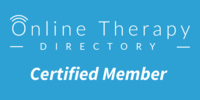Military Culture: Core Competencies for Health Care Professionals Stressors and Resources
This course offers the learner an explanation on how stress can be either helpful or harmful depending on the nature of the provoking stressor and the availability of resources. The four phases of modern operational deployment cycles is presented in great detail in module 3. The next two modules describe the characteristic operational stressors and the spectrum of operational stress states and outcomes experienced by Service members and their families during each deployment cycle phase.
Military Culture: Core Competencies for Health Care Professionals Military Organization and Roles
The course opens with an overview of the differences between the explicit and implicit features of military culture and proceeds to describe the characteristics of implicit military culture. The next module identifies four sources of information about implicit military culture and describes six defining characteristics of warrior ethos. The learner is provided information about the influence of military guiding ideals and values on the lives of Service members and Veterans. The final module offers an overview regarding the connotations of implicit military culture on the health care professional.
Military Culture: Core Competencies for Health Care Professionals Self-Assessment and Introduction to Military Ethos
This course, sponsored by Department of Veterans Affairs and Department of Defense, aims to help you understand the role that military culture plays in the lives of those you serve. This course is comprised of four modules. In addition to this course module, other modules are Military Organization and Roles; Stressors and Resources; and Treatment Resources and Tools. DISCLAIMER: The views expressed in this course are those of the presenters and interviewees and do not necessarily reflect the opinions of the Department of Defense, the Department of Veterans Affairs, the Uniformed Services University of the Health Sciences, or the U.S. Government. You can stop any interview clip as needed and still be able to continue with the course.
Military Culture: Core Competencies for Health Care Professionals Treatment Resources and Tools
The final course in the military culture curriculum outlines the military culture impact on patient care and the health care professional’s role and explains the range of DoD and VA psychological health services. The course also provides information on interpreting military culture knowledge into patient assessment and treatment. Finally, the learner is exposed to the military culture implications of VA/DoD clinical practice guidelines relevant to the care of Servicemembers and Veterans and the strategies for identifying current military culture relevant patient and health care professional resources.
Counseling on Access to Lethal Means (CALM)
Access to lethal means can determine whether a person who is suicidal lives or dies. This course explains why means restriction is an important part of a comprehensive approach to suicide prevention. It will teach you how to ask suicidal patients/clients about their access to lethal means, and work with them and their families to reduce their access.


